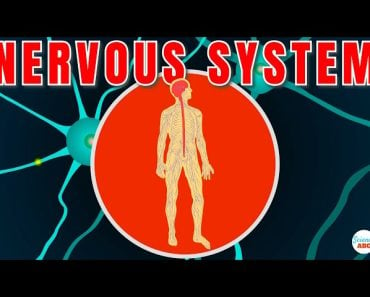Table of Contents (click to expand)
We blink to lubricate our eyes and to clean them. We also blink to take a break from paying attention. When we blink, the activity in our attention network is inhibited and the activity in our default mode network increases.
We blink, like we breathe, unceasingly. An adult blinks at least 12 times every waking minute. However, while the benefits of breathing are obvious, the same cannot be said about blinking. In fact, our momentary lapses into darkness come at the cost of blocking 10% of our daily visual input. Then why is it that we blink?
Recommended Video for you:
Lubrication
Every time you blink, from the corner of your eyes, a blend of secretions are released that clean and lubricate the intricate machinery of the eye. These secretions include oils and mucous, secretions that prevent the eyeballs from drying out. Furthermore, the eyes, as Shakespeare mused, “are the window to your soul”, but that soul can be marred if the windows aren’t shut to the dust outside. Thus, currently, we believe that shutting the lids over our eyes cleanse and shield their sensitive parts from dust particles.

The protection is strengthened by the presence of eyelashes, where debris gets stuck like kites in a tree. Blinking, other than warding off dust particles, also shuts the door to potentially harmful stimuli, such as excessively bright light. These two theories explain why one tends to blink more than usual during windy or dry days.
However, shouldn’t being completely blind for 10% of our waking hours hinder our functioning? Shouldn’t we be effectively blind and blank out while blinking? And no, the reason why this is not the case is not that a blink lasts for less than 1/10th of a second. The explanation is actually something deeper and more unexpected.
Also Read: Why Do Our Eyes Burn After Just Waking Up?
Attention Breaks
The brain is remarkably good at fooling you. The reason why you don’t blackout while blinking is partly the same reason you can’t see your own nose, even when it unapologetically invades your already limited field of vision. The brain cleverly ignores it, as though it were never there. Similarly, one ingenious study showed that the brain cleverly ignores the darkness by switching off during every blink, as though it never emerged.

According to researchers, blinking occurs at ‘breakpoints’ where attention or conscious processing can be relinquished and revived later. This includes full-stops while reading text or pauses while listening. However, blinking doesn’t just occur at explicit breakpoints, but also at ‘implicit’ breakpoints that one encounters in videos. These are points where the brain suppresses attention when it knows that the most relevant events are the most unlikely to occur, such as when the protagonist exits the scene.
To prove this, they tested 10 individuals by making them watch episodes of Mr. Bean while being scanned by an fMRI scanner. The images allowed them to measure the degree of activity of every subject’s cortex when he or she blinked while watching the videos.

The researchers found that activity in areas associated with attention plummeted moments before a subject blinked, while simultaneously, a spike in areas that constitute the Default Mode Network (DMN) — our auto-pilot system — was observed. When we blink, the activity of our attention network, the very network that detects environmental changes, is inhibited. However, to continue the functioning of the rest of the networks, the DMN takes over. When we open our eyes again, the attention network revives and we experience the world as continuous, as though nothing occurred. If we weren’t conscious to detect the darkness, did it even exist?
However, to ensure that these were responses to spontaneous blinking and not actual visual interruptions in the video, researchers recorded brain images of the subjects viewing actual blackouts subtly inserted into the video. Each blackout persisted for exactly 1/10th of a second, the same time one spends blinking. When they compared the two images — one limning the DMN activity of subjects blinking and the other when the subjects witnessed an actual blackout, they found that the former was more illuminated — the cortex areas were more activated during a blink!
Blinking seems to provide us a respite, albeit momentarily, from the arduous task that is deliberate concentration. Fatigue is the reason why the rate of blinking escalates when one reads for hours at a stretch. However, one can notice that, on the contrary, its frequency decreases when one is alert while beginning the reading session. So, that’s why we blink… what an eye-opener this was! (eh? eh? It had to be done.)
Also Read: How Does The Brain Pay Attention?
References (click to expand)
- Nakano, T., Kato, M., Morito, Y., Itoi, S., & Kitazawa, S. (2012, December 24). Blink-related momentary activation of the default mode network while viewing videos. Proceedings of the National Academy of Sciences. Proceedings of the National Academy of Sciences.
- Why do we blink? | Live Science. Live Science
- Blinking - Wikipedia. Wikipedia












